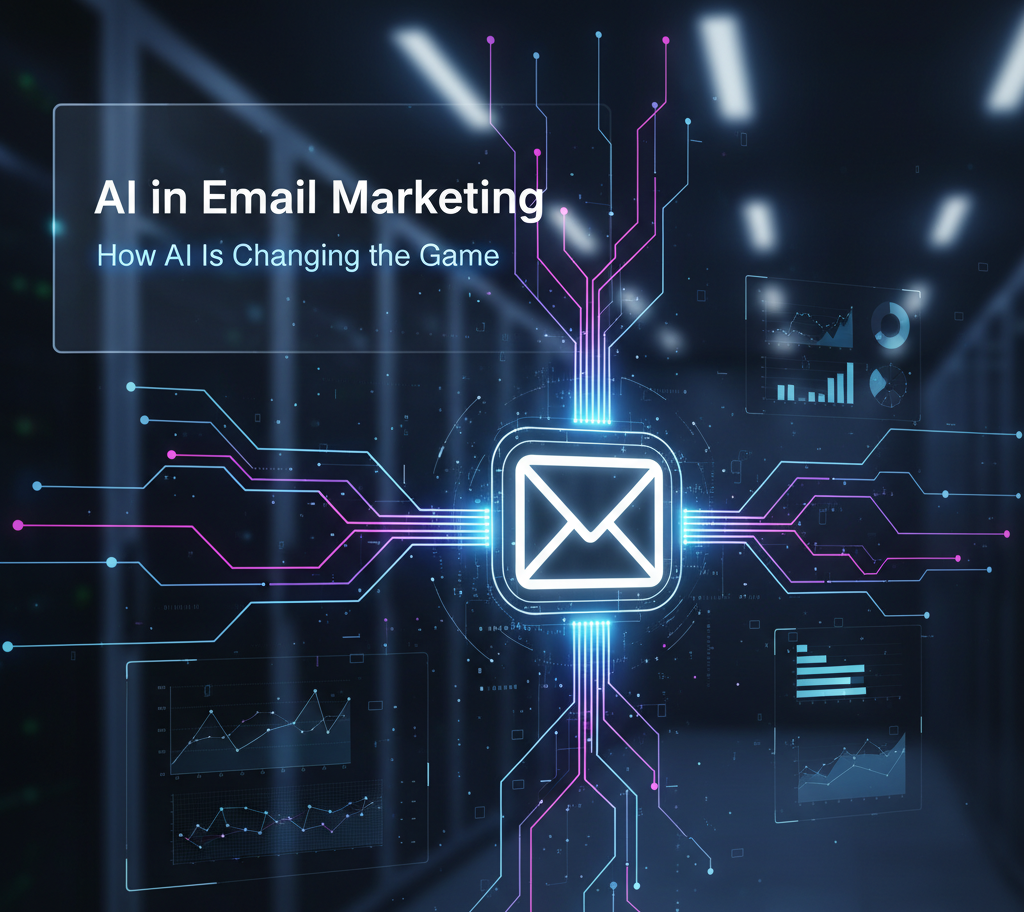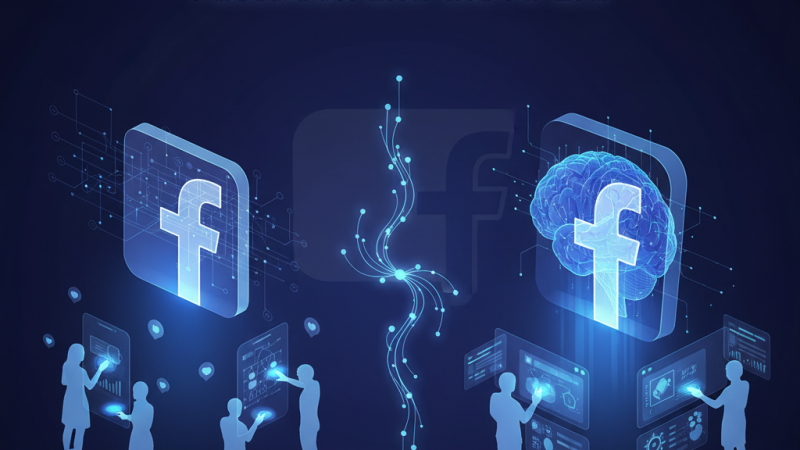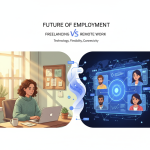Introduction: The Smart Shift in Email Marketing
Email marketing has long been one of the most powerful tools in digital marketing. But as inboxes get crowded and audience behavior becomes more complex, traditional methods no longer guarantee success. Enter AI in email marketinga game-changer that’s redefining how brands communicate, personalize, and convert.
Artificial intelligence is doing more than just automating repetitive tasks. It’s helping marketers understand customers, predict behaviors, and deliver hyper-personalized messages at scale. With AI, email marketing is no longer just about sendingit’s about connecting intelligently.
Understanding How AI Transforms Email Marketing
Artificial Intelligence brings automation, analytics, and prediction into the heart of email strategy. It analyzes user data, learns patterns, and adjusts campaigns in real time. Here’s how AI transforms traditional email workflows:
- Smarter segmentation: AI divides audiences based on real behaviors, not assumptions.
- Predictive analytics: It forecasts open rates, conversions, and churn risk.
- Dynamic content: AI customizes each email for individual preferences.
- Automated testing: Machine learning identifies the most effective subject lines and visuals.
This means marketers can send fewer emails but achieve higher engagement and conversionsworking smarter, not harder.
Personalization at Scale: AI’s Biggest Strength
One of the biggest challenges in email marketing has always been personalization. Manually tailoring emails for thousands of subscribers is impossiblebut AI makes it seamless.
By analyzing user data like browsing history, location, purchase behavior, and engagement patterns, AI tools can automatically craft messages that feel one-to-one. Examples include:
- Recommending products based on past purchases.
- Sending personalized subject lines that match user interests.
- Adjusting send times to when each recipient is most active.
- Creating dynamic templates that adapt to individual readers.
This level of personalization fosters stronger connections and brand loyaltysomething generic, one-size-fits-all campaigns simply can’t achieve.

Smarter Automation: AI-Powered Campaigns That Run Themselves
Traditional email automation follows predefined triggerssuch as a “welcome” email after signup or a “thank you” message after purchase. But AI-powered automation goes much further.
It can:
- Identify the perfect moment to send follow-ups.
- Adjust campaign frequency based on user engagement.
- Pause emails automatically if users show disinterest.
- A/B test creative variations without manual setup.
This continuous optimization creates a truly intelligent marketing cycle. AI ensures that campaigns evolve with audience behaviordelivering relevance in every interaction.
Predictive Analytics: Knowing What Customers Want Next
AI doesn’t just reactit predicts. Using historical data, it can forecast which customers are most likely to engage, buy, or unsubscribe. This predictive power helps marketers make smarter decisions about where to focus efforts and budget.
Here’s what AI can predict in email marketing:
- Customer lifetime value (CLV)
- Churn probability
- Purchase intent
- Optimal discount offers
For example, if AI detects a user is about to churn, it can trigger an automated win-back campaign with a personalized incentive. This proactive approach turns data into strategic action.
Content Optimization: Crafting Emails That Resonate
What makes an email engaging? Subject lines, visuals, tone, and structureand AI can analyze all of it. Through natural language processing (NLP) and machine learning, AI tools evaluate what type of content drives engagement.
- Subject line generators like Phrasee or Copy.ai analyze tone and emotion to boost open rates.
- Content analyzers test readability and sentiment.
- Design optimizers rearrange layouts for better click-through rates.
By analyzing thousands of variations, AI can determine what resonates best with different audience segments. The result? Emails that feel humanbut are powered by machine intelligence.
Improving Deliverability and Reducing Spam
Even the best email won’t work if it never reaches the inbox. AI helps improve email deliverability by monitoring reputation, analyzing bounce rates, and detecting spam triggers before they happen.
AI algorithms can:
- Adjust sending frequency to reduce spam complaints.
- Clean mailing lists automatically by identifying inactive users.
- Optimize subject lines to avoid spam filters.
This ensures your content lands exactly where it shouldin your audience’s inbox, not their spam folder.
The Human Touch: AI as a Creative Partner, Not a Replacement
While AI in email marketing excels at automation and prediction, the human touch remains essential. Creativity, empathy, and brand storytelling are still uniquely human strengths.
AI can generate data-backed insights and content suggestions, but marketers decide the message tone, brand voice, and emotional appeal. The best email strategies combine AI efficiency with human creativityturning technology into a partner rather than a replacement.
For instance, while AI can craft multiple headline variations, a marketer chooses the one that aligns best with brand values and emotional intent. It’s this collaboration between human intuition and machine precision that drives true innovation.
Future of AI in Email Marketing: What’s Next?
The evolution of AI in email marketing has only just begun. Future developments will focus on deeper personalization, voice-based interactions, and real-time behavior tracking. Some emerging trends include:
- AI chat integration: Turning emails into interactive, conversational experiences.
- Emotion recognition: Analyzing tone and sentiment for hyper-personalized responses.
- Omnichannel automation: Integrating emails with SMS, social media, and web notifications for cohesive user journeys.
- AI-driven storytelling: Using AI to create narrative-driven campaigns that evolve dynamically.
As these technologies mature, marketers will shift from creating campaigns to curating experienceswhere every message feels unique, relevant, and human.
Conclusion
Artificial Intelligence has redefined the rules of email marketing. From personalization and predictive analytics to automation and optimization, AI tools are helping marketers connect with audiences in more intelligent, meaningful ways.
The question isn’t whether AI will change email marketingit already has. The real question is how brands will adapt to leverage it creatively and strategically.
As businesses embrace smarter digital solutions, platforms like Wiraa offer opportunities for freelancers, marketers, and remote professionals to collaborate on AI-driven projectsshaping the next era of email marketing innovation.
The future belongs to those who combine human creativity with AI intelligenceworking smarter, not harder.



